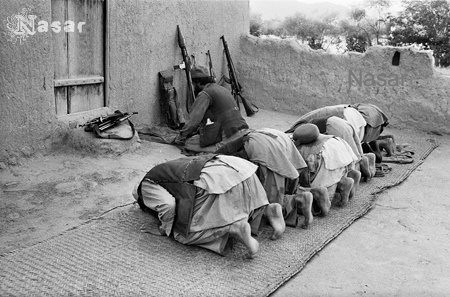
As the world remembers the late British prime minister Margaret Thatcher, her close alliance with Ronald Reagan is receiving a lot of attention. There is one element of this relationship that is not coming up so much, though.
Within three weeks of the Soviet invasion of Afghanistan the cabinet secretary, Sir Robert Armstrong, was negotiating how to channel covert military aid towards the “Islamic resistance” that was fighting the Russians.
Details of how swiftly clandestine weapons routes were opened up to aid the mujahideen emerge from secret cabinet documents released to the National Archives today under the 30-year rule.
The files show how extensive military and diplomatic efforts – co-ordinated with western allies – were made to defeat the USSR and the lengths to which Thatcher went to discourage participation in the 1980 Olympics.
As we all know, the Western efforts in Afghanistan did pay off. The Soviets ultimately had to withdraw, and their adventurism in Afghanistan certainly played a part in the collapse of the Soviet Union. Afghanistan, however, never recovered. It became a chaotic haven favored by Islamic radicals. Which, in turn, gave us 9/11.
Did any of the US/UK aid go to Arab Jihadis in Afghanistan? That is a controversial issue. Western and al-Qaeda sources have both denied it. But you don’t need to think hard to see why they both have motives to deny their past coziness.
What is uncontroversial is that Western aid did go to Afghan mujahideen, that is, Islamic warriors. And that Thatcher did build ties with Zia Ul Haq, the military dictator that brought theocracy to Pakistan, once a secular country, possibly with the intention of securing supply routes to the mujahideen.

And hence we are all living in a more dangerous world today, and Margaret Thatcher may well have been partly to blame for that.
